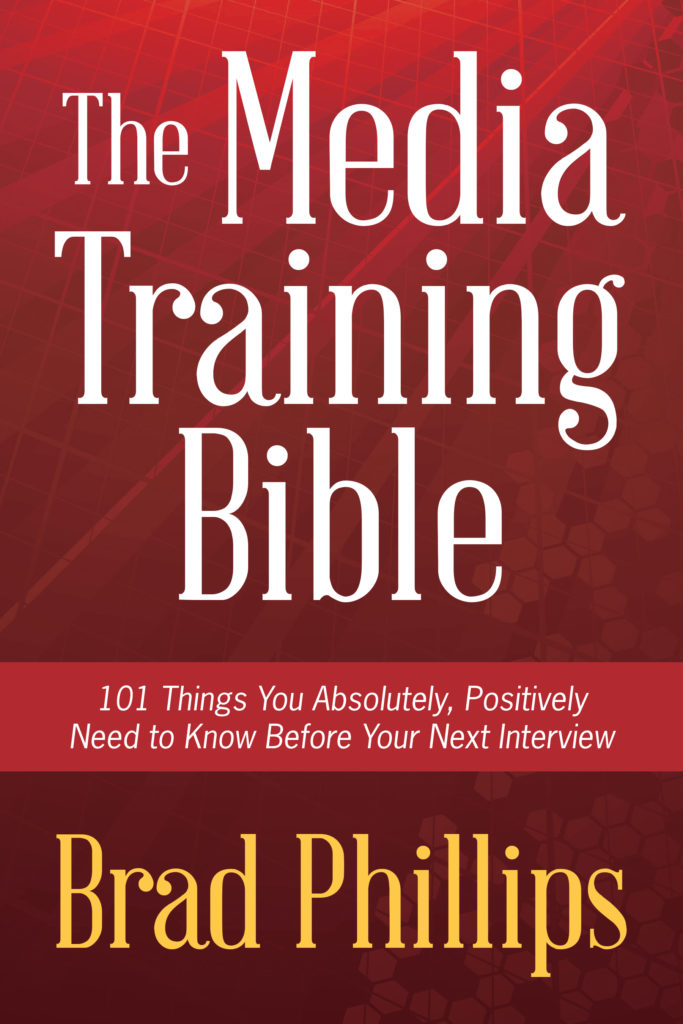How To Repeat Yourself (Without Ever Sounding Repetitive)
This is an excerpt from The Media Training Bible, available in soft cover, for Kindle, and iPad.
We’ve all seen those politicians on television who keep reciting the same message points over and over again.
Such overt repetition tends to infuriate the audience. It’s easy to picture viewers rolling their eyes in disgust and shouting, “Answer the question!” at their television sets—if they didn’t already flip to a different channel.
As a result, the politicians not only fail to persuade the audience but also diminish their reputations in the process.
So it may surprise you that my advice is to articulate a message or message support in almost every answer you ever give.
I don’t mean that you should repeat the same words in every answer, but rather that all of your answers should convey the theme of at least one of your main messages.
If you filled in the message worksheets in lesson 93, you now have 21 different answers: three in the form of messages, six as stories, six as statistics, and six as sound bites. Those 21 answers allow you to answer 21 different questions in 21 different ways, all of which are “on message” but none of which are repetitive.
You may occasionally wonder whether it’s okay to abandon your message for an answer or two along the way. I’d encourage you not to. Here’s why: Let’s say a newspaper reporter asks you 10 questions during an interview. You articulate a message or message support in 7 of your 10 answers. Pretty good, right?
But what happens if the reporter chooses to quote one of your other three answers? It means your one quote in the story—that one critical opportunity to influence or educate your audience— will not contain one of your most important points.

I know that may sound obvious, but I can count dozens of exasperated clients who have asked me at some point, “Why did the reporter include that quote? It wasn’t even that important!” I always respond the same way: “If you don’t want it quoted, don’t say it at all.”
I often joke with my clients that you should even transition to a message when a reporter asks, “How are you?” I’m kidding, but barely. Most questions are opportunities to communicate a message or message support, so don’t waste any answers. Today’s wasted answer may become tomorrow’s quote.
Unless the interview is live, reporters will usually offer you a final opportunity to get your messages out. Journalists typically end their interviews by asking if they missed anything or whether there’s anything you’d like to add. Seize that opportunity. If you said everything you needed to say during the interview, restate a key point. If you forgot to state one of your messages, that’s the perfect time to do it.
Finally, remember to treat your communications with reporters before and after the interview as if they’re part of the “official” interview. Your interactions with reporters prior to an interview may help inform the questions they ask, and your follow-up emails may help the reporter remember to include a key point in the final story.
This is an excerpt from The Media Training Bible: 101 Things You Absolutely, Positively Need to Know Before Your Next Interview, available in paperback, for Kindle, and iPad.



